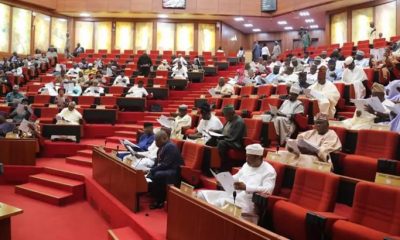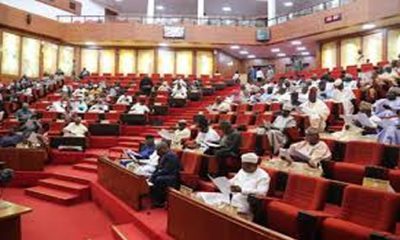Energy and Power
Senate amends 29 year old Banking law, probe power sector interventions

As part of the legislative process to amend the Banks and Other Financial Institutions Act, the Senate on Tuesday took debates on the bill seeking to amend the 29 year Act, which co-sponsored by Senators Uba Sani and Betty Appiafi.
Leading debates on the general principles of the bill on behalf of the sponsors, Senator Uba Sani stated that the aim of the amendment is to update and strengthen the existing Act to effectively address the challenges being faced in the finance services sector in Nigeria in line with global best practices.

Senator Sani explained that while in other countries like South Africa and Egypt, the laws regulating banking and other financial institution are regularly updated, in Nigeria the law that was enacted almost 30 years ago has remained in force.
According to the Senator, the objectives of the bill includes – to update the laws governing Banks, Financial Institutions and Financial Services Companies; enhance efficiency in the process of obtaining/granting banking licenses; accurately delineate the regulatory functions of the Central Bank of Nigeria in the financial services industry; update and incorporate the laws for enacting, licensing and regulation of micro-finance banks; regulate the activities of financial technology companies (FINTECHs; and update commensurate penalties for regulatory breaches in the financial services sector.
According to him, when passed eventually, the bill will strengthen the legal framework for the regulation of banks to prevent distress especially in turbulent periods like COVID-19 so that the country can adequately prepare and deal with potential post COVID-19 challenges in the banking sector.
Meanwhile, the Senate has mandated its committee on power to investigate all government’s intervention in the power sector since commencement of privatisation and urged the Federal government to suspend the planned hike in electricity tartifs scheduled for 1st of July 2020 as a result of hardship occasioned by the Covid-19 Pandemic.






















